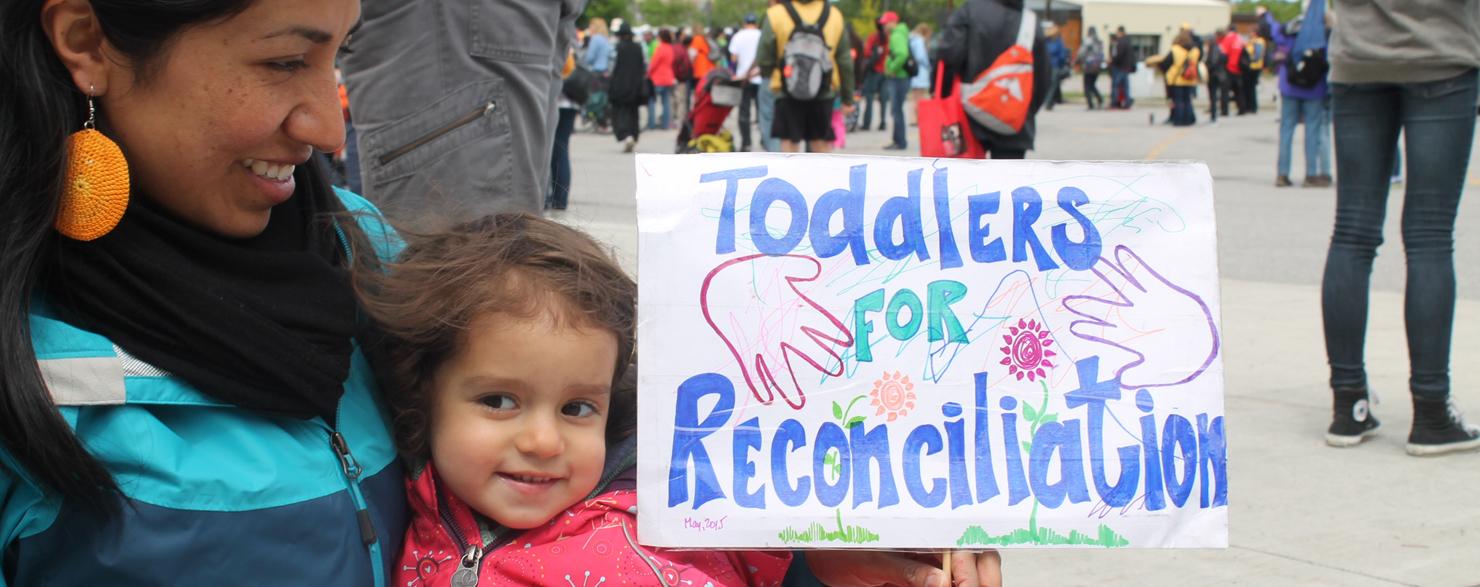
On Sunday, thousands marched in the Walk for Reconciliation in Ottawa, to remember and honour the tragic experiences of Canada’s indigenous people as a result of the residential school system, and forge a shared path towards reconciliation.
Dark Legacy of Residential Schools
For over 100 years, indigenous children were taken from their homes and placed into state funded, church-run residential schools. During this time, their spirituality, culture and family were systematically stripped away. Thousands of children died in residential schools and even more experienced violence and abuse. In fact, current numbers are still be investigated because of so many undocumented cases. When parents and families tried to intervene, they were persecuted under the Indian Act.
The physical and psychological impacts of the residential school system on indigenous people in Canada can be felt across the country. Poverty, intergenerational trauma, missing and murdered aboriginal women and girls and overall disparities in all social determinants, is its legacy.
In yesterday’s Vancouver Sun, Daphne Brahman shared her perspective on why reconciliation starts with acknowledging Canada’s shared history in the genocide of indigenous culture and why this is an important issue for BC.
The Truth and Reconciliation Commission
The Truth and Reconciliation Commission (TRC) was formed for the children of the residential schools, now adults, to ‘tell and teach’ Canadians about their experiences and ensure they are publicly documented as a part of Canada’s history.
TRC Commissioner, Dr. Marie Wilson, speaks about the creation and role of the TRC in Canada and describes what makes it unique, compared to all other TRC’s in the world: it’s the first and only one created by the former students themselves. The
TRC worked for seven years to gather stories and personal testimonies from brave survivors, and examine data from the 139 schools,16 hospitals and over 150,000 indigenous people.
The result was the year of reconciliation which came to a close with three days of commemoration this week. Events were kicked off with the Walk for Reconciliation and followed by educational events and healing ceremonies including live streaming of survivor testimonies, film screenings, youth-led initiatives, archival displays and the release of the TRC findings with a series of recommendations.
The 94 recommendations included a National Inquiry into Missing and Murdered Indigenous Women and Girls and the adoption of the UN Declaration on the Rights of Indigenous Peoples.
The events attracted Indigenous leaders, elders, youth and non-indigenous Canadians and the YWCA Metro Vancouver was honoured to be part of a YWCA contingent, marching in solidarity with Canadians from across the country.
Collective efforts from all peoples are necessary to revitalize the relationship between Aboriginal peoples and Canadian society – reconciliation is the goal. It is a goal that will take the commitment of multiple generations but when it is achieved, when we have reconciliation - it will make for a better, stronger Canada.
-Truth and Reconciliation Commission
To learn more and join the conversation, follow these hashtags on social media:#2Reconcile, #TRC2015, #MyReconciliationIncludes and share this post!

